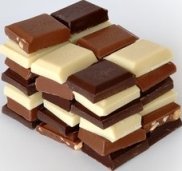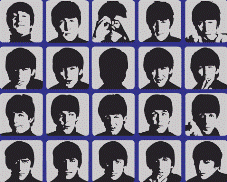OUTCAST
My Dad drives one, my flatmate drives one, and so do thousands of other Kiwis. Quite rightly, many claim a legitimate need for their SUV. I'm heading to the hills with my flatmate this weekend, and often tag along on kayak trips - missions made a lot easier because he has a gas guzzler that can go all but anywhere. My flatmate feels a little uncomfortable, but my Dad is substantially oblivious to the gas guzzling 4x4 impact. But not as oblivious as the guy in this latest Greenpeace ad (hat tip Gristmill).
My flatmate feels a little uncomfortable, but my Dad is substantially oblivious to the gas guzzling 4x4 impact. But not as oblivious as the guy in this latest Greenpeace ad (hat tip Gristmill).
The ad is part of a concerted effort on the part of British anti-SUV activists to place social pressure on gas guzzlers. Like a recent spoof ticketing effort as reported last week, pushing SUV stigma is indeed a clever campaign ploy.
If you absolutely must buy an SUV consider that Hyundai seem to be getting continued good press - also outlined in my earlier moto-thread.
Take a look at the Greenpeace ad. It's hilarious. Fwd it to your SUV friends, hell, maybe even put post-it notes to better use at your workplace...
Wednesday, July 26, 2006
Thursday, July 20, 2006
CACAO KICKS
Of late I've developed a little chocolate snobbery. I've got such a sweet tooth that previously I'd pretty much indulge in whatever chocolate I could get my hands on. But a couple of recent trips to Peoples Coffee in Newtown have now forced me to place quality over quantity. To go with their fair trade coffee, Peoples stock fair trade chocolate from Trade Aid. I don't know if it was that particular coffee/choccie taste combo that got me started, but now I just can't get enough of Trade Aid chocolate. Oh, and this seems an opportune moment to mention that its my birthday next week...
To go with their fair trade coffee, Peoples stock fair trade chocolate from Trade Aid. I don't know if it was that particular coffee/choccie taste combo that got me started, but now I just can't get enough of Trade Aid chocolate. Oh, and this seems an opportune moment to mention that its my birthday next week...
Where was I... yes, with Trade Aid chocolate you can of course be sure that the grower has been fairly engaged, and that his/her growing practices are sustainable. If you add that to the foggy headed feeling that wells up just thinking of the taste, you know Trade Aid chocolate is a winner.
Wellington is blessed with being the global HQ of Whittakers (well "Whittakers de Porirua" to be more accurate). For me, Whittakers is not quite as good as the Trade Aid equivalent, but still, it's a pretty fine block. A quick scan through their website reveals a whole raft in onfo you wouldn't usually expect from a choccy purveyor. Their cacao comes from Ghana and cocoa butter from Singapore and Malaysia. No mention of fair trade, but still, good to know the country of origin.
Those chaps down in Dunedin deserve a mention here too. Cadbury chocolate is good. No doubt about it. But as good as Whittakers? No. And as good as Trade Aid? Not even in the same ball park. Cadbury are owned by a British PLC, so their benefits for the NZ economy on a "chocolate bar for chocolate bar" basis are not as good as Whittakers. One feature of the Cadbury range is Milk Tray. Tasty, yes, but these choccies come in Plantic trays made from non-GM corn starch rather than plastic. Now that's gotta be a good thing. The only problem is that Plantic dissolves in water - so the product needs another layer of plastic around it for protection. Counter-productive? Maybe, but it's a good start down the road toward product stewardship.
Slap my butt and call me porky, but as its my birthday next week I'll be having some more chocolate. It'll be Trade Aid chocolate because it's so damn tasty, and it's fair.
More about: food, sustainable shopping
Posted by
mikeymike
at
12:01 pm
1 comments
![]()
Thursday, July 13, 2006
...MONEY CAN'T BUY ME LOVE!
Yesterday the New Economics Foundation released their latest Happy Planet Index. Happiness and consumption appear to be mutually exclusive! That is an extreme interpretation of the results, but with Vanuatu as the happiest place on earth and the USA at 150th, it's not miles away from the truth. One audience comment at last nights Hunter Lovins forum lamented the fact that we are told by political party after political party that only they can increase our "standard of living". And we buy in to it. Press and politicians spout that we are "ranked bla bla in the OECD for bla bla". Where are Vanuatu? Not in the OECD is where they are, and are they any the worse for it? Not according to the NEF. So how important is the ability to consume in making people happy?
One audience comment at last nights Hunter Lovins forum lamented the fact that we are told by political party after political party that only they can increase our "standard of living". And we buy in to it. Press and politicians spout that we are "ranked bla bla in the OECD for bla bla". Where are Vanuatu? Not in the OECD is where they are, and are they any the worse for it? Not according to the NEF. So how important is the ability to consume in making people happy?
In reporting on the NEF study the BBC stated that "retail therapy will not bring happiness". I read somewhere that the feeling of euphoria associated with shopping is most often very short. A clear indication that going shopping for recreation is indeed bonkers. Don't panic - ShoppingFix is on its way...
More about: community, consumerism
Posted by
mikeymike
at
3:51 pm
0
comments
![]()
LOVIN' IT 2.0
Yesterday I attended two of the three forums led by Hunter Lovins - the international empress of sustainability and Time Magazine "hero for the planet" in 2000. And yes, she really does dress like a Rocky Mountain cowgirl - she is a Rocky Mountain cowgirl! Lovin' it I was! Lovins is the most concise big picture environmental articulator I have had the pleasure of listening to. Her ability to respond to panel and audience discussion by boiling issues down to the most digestible of solutions is inspiring. It's just a pity that there were no more than 50 others at either of the two presentations I attended.
Lovin' it I was! Lovins is the most concise big picture environmental articulator I have had the pleasure of listening to. Her ability to respond to panel and audience discussion by boiling issues down to the most digestible of solutions is inspiring. It's just a pity that there were no more than 50 others at either of the two presentations I attended.
Some of the discussion was brilliant. For the evening session the topic was based on the question "how do we learn?" In this session Lovins presenting several examples of engineers succeeding by looking at natural processes. An excellent point was made by a member of the audience: we're currently re-inventing the wheel - we've lost the ability to "see" nature, and therefore we have lost the "feel" for its capacity. Generally, we're either blind to, or in denial of environmental impact. This is exactly what I wrote about in an earlier thread. We need to re-connect.
The point was given strength by Malibu Hamilton, a panel member from Whaingaroa/Raglan who has extensive community links in the Waikato region. Hamilton is adamant that Maori values - including their role as custodians of the land for future generations - are key to a healthy environment. I couldn't agree more. In Maori learning the connection with the land is dominant. In the "education system" nature is far from consideration. And for most of us "learning on the job" it is economic connections that are most often singular.
I asked a question of Lovins about the role of media. Not of commercial media (where revenue objectives often compromise outcomes), but the role of state broadcasting. It seems to me that communicating an articulate environmental message is paramount, yet there is no real media forum to present the message to "the masses" (except blogging of course!). If reality TV is considered "documentary content" under broadcast quota, and reality TV has been done to death, surely then we have a prime chance to promote environmental values in a public domain.
Posted by
mikeymike
at
1:02 pm
0
comments
![]()
Monday, July 10, 2006
SHIFTING Vs SIFTING
In an interesting aside to my last thread, an "informal" poll at a small regional UK public body gathering late last week indicated that more recycling would lead to higher council tax (rates). Apparently "the public will have to get used to paying fees for enhanced services". There is of course scope to explore tax shifting within this framework, but it's clear: there's a gap between what tax/rate payers expect and what councils can provide. I guess that's why we have a user pays economy...
Posted by
mikeymike
at
9:55 pm
0
comments
![]()
Thursday, July 06, 2006
SHIFTING WASTE (AND TAX)
Several British media outlets reported this week that a vast majority of Brits would accept a tax levied on non recyclable household waste. The argument is that if councils can decrease the volume (and therefore cost) of waste they have to manage, they can charge a lower Council Tax (our equivalent of rates)... a classic example of tax shifting. So rather than squeezing more out of consumers (as was the argument used by opponents of the NZ carbon tax), those who are able to reduce kerbside waste are rewarded for putting some thought toward their "throw away" shopping mentality. Take from the bad to give to the good.
So rather than squeezing more out of consumers (as was the argument used by opponents of the NZ carbon tax), those who are able to reduce kerbside waste are rewarded for putting some thought toward their "throw away" shopping mentality. Take from the bad to give to the good.
Although New Zealand is heralded as the clean green paradise our habits suggest otherwise. We throw out about double the amount of domestic waste per capita as Britons and around six times as much as many European countries where household waste is currently levied. (I'd like to be proven wrong on these stats, but they're the best I can find.)
It is timely then, that the Greens waste minimisation bill got drawn from the ballot a month or so back. We need to address solid waste now, and unfortunately it can't be addressed by the market. The bill places emphasis on product stewardship (producer responsibility) - in recognition that voluntary measures such as the Packaging Accord have been a failure. So we could eventually see here what is apparently commonplace in Germany. Supermarkets where you fill your own container for many products.
As it is, those of us who do make an effort to reduce our rubbish in effect subsidise those who waste indiscriminately. So why not send an accurate economic message by changing the rating focus...?
Posted by
mikeymike
at
5:50 pm
0
comments
![]()
Monday, July 03, 2006
LOVIN' IT Wednesday July 12 is a superb opportunity to hear Hunter Lovins present her angle on sustainable business. She outlined potential business solutions to our ecological impasse in the 1999 book "Natural Capitalism" co-authored with Paul Hawkins and Amory Lovins. Lovins is in Wellington on the 12th - the last day of public speaking dates around the country.
Wednesday July 12 is a superb opportunity to hear Hunter Lovins present her angle on sustainable business. She outlined potential business solutions to our ecological impasse in the 1999 book "Natural Capitalism" co-authored with Paul Hawkins and Amory Lovins. Lovins is in Wellington on the 12th - the last day of public speaking dates around the country.
Following her presentation Lovins will engage the audience as part of a panel discussing sustainability issues. This is nothing short of a world class opportunity for you to get some fresh susainability thinking on board. See you there (at the morning session at least!).
Posted by
mikeymike
at
6:48 pm
0
comments
![]()


